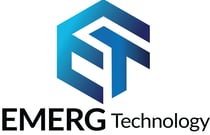The Ever-Evolving World of Technology: Innovations, Impact, and Future Trends
Emerg Technology
3/6/20233 min read

The Ever-Evolving World of Technology: Innovations, Impact, and Future Trends
Technology is an integral part of our lives, influencing how we communicate, work, and even think. From the invention of the wheel to artificial intelligence, technological advancements have consistently reshaped human civilization. Today, we stand at the threshold of an era driven by digital transformation, automation, and innovation. This blog explores the evolution of technology, its impact on various sectors, and the trends shaping the future.
The Evolution of Technology
The journey of technology began with simple inventions that addressed fundamental human needs. The discovery of fire, the development of agriculture, and the invention of the printing press were all pivotal moments that changed the course of history. The Industrial Revolution introduced machinery, leading to mass production and improved living standards. The 20th century witnessed the rise of computers and the internet, which revolutionized communication, business, and entertainment.
In the 21st century, rapid advancements in artificial intelligence (AI), blockchain, quantum computing, and biotechnology continue to drive progress. These innovations are not just improving efficiency but are also creating new possibilities for humanity.
Impact of Technology on Different Sectors
Technology's influence is visible across every industry, transforming traditional methods and enhancing productivity. Let’s explore how technology has impacted key sectors:
1. Healthcare
The healthcare industry has seen significant improvements with the integration of technology. Telemedicine, wearable health devices, AI-driven diagnostics, and robotic surgeries are revolutionizing patient care. Electronic health records (EHRs) enable seamless data access, reducing errors and improving treatment outcomes. Furthermore, biotechnology and genetic engineering are paving the way for personalized medicine and advanced treatments for previously incurable diseases.
2. Education
Education has transitioned from traditional classroom settings to digital learning platforms. Online courses, virtual classrooms, and AI-driven tutoring systems are making education more accessible and personalized. Augmented reality (AR) and virtual reality (VR) technologies enhance the learning experience, allowing students to explore concepts in an interactive manner.
3. Business and Economy
Technology has transformed the way businesses operate. E-commerce, digital marketing, cloud computing, and automation have streamlined operations, reducing costs and increasing efficiency. Artificial intelligence and big data analytics enable companies to make data-driven decisions, enhancing customer experience and business growth. Additionally, blockchain technology is revolutionizing financial transactions, ensuring security and transparency.
4. Communication
The evolution of communication technology has bridged geographical gaps. From traditional postal services to instant messaging and video conferencing, communication has become faster and more efficient. Social media platforms and digital collaboration tools enable seamless interaction, fostering global connectivity.
5. Transportation
Innovations in transportation technology are making travel safer and more efficient. Electric vehicles (EVs) and autonomous cars are reducing carbon footprints, while high-speed trains and smart traffic management systems enhance urban mobility. Space exploration has also advanced, with private companies like SpaceX working on missions to Mars and beyond.
Emerging Technology Trends
As technology continues to evolve, several emerging trends are shaping the future. Here are some of the most significant trends:
1. Artificial Intelligence and Machine Learning
AI and machine learning (ML) are driving automation and enhancing decision-making across industries. From AI-powered chatbots to self-learning algorithms, these technologies are improving efficiency and transforming industries such as healthcare, finance, and manufacturing.
2. Internet of Things (IoT)
IoT connects physical devices to the internet, enabling them to collect and share data. Smart homes, connected cars, and industrial IoT applications are enhancing convenience and operational efficiency. This technology is also being used in agriculture to monitor soil conditions and optimize crop yields.
3. 5G Technology
The rollout of 5G networks is set to revolutionize connectivity, providing faster speeds and lower latency. This will enable innovations in areas such as smart cities, remote healthcare, and augmented reality applications.
4. Blockchain and Cryptocurrency
Blockchain technology ensures secure, transparent, and decentralized transactions. Cryptocurrencies like Bitcoin and Ethereum are gaining acceptance, while industries like finance, supply chain, and healthcare are leveraging blockchain for enhanced security and traceability.
5. Quantum Computing
Quantum computing has the potential to solve complex problems beyond the capabilities of classical computers. This technology is expected to revolutionize fields such as cryptography, materials science, and drug discovery.
6. Biotechnology and Genetic Engineering
Advancements in biotechnology are leading to breakthroughs in medicine and agriculture. CRISPR gene-editing technology is opening new possibilities for treating genetic disorders, while lab-grown meat and vertical farming are addressing food security concerns.
The Future of Technology: Opportunities and Challenges
As we embrace the future of technology, we must acknowledge both the opportunities and challenges it presents.
Opportunities
Enhanced Quality of Life: Technological advancements improve healthcare, education, and living standards.
Economic Growth: Innovation drives new industries, job opportunities, and economic expansion.
Environmental Sustainability: Green technologies, renewable energy, and smart infrastructure contribute to a sustainable future.
Challenges
Cybersecurity Risks: With increased connectivity, cyber threats and data breaches pose significant risks.
Job Displacement: Automation and AI may replace traditional jobs, requiring workforce reskilling.
Ethical Concerns: AI bias, privacy issues, and ethical implications of genetic engineering require careful regulation and oversight.
Conclusion
Technology continues to shape our world, bringing both opportunities and challenges. As we move forward, it is essential to balance innovation with ethical considerations, ensuring that technology serves humanity in the best possible way. Whether it's AI, blockchain, or quantum computing, the future holds exciting possibilities. By embracing technological advancements responsibly, we can create a smarter, more connected, and sustainable world for generations to come.
Contact us
Whether you have a request, a query, or want to work with us, use the form below to get in touch with our team.


Location
RZ Puran Nagar, Opp. Palam Metro Station, Delhi 110045
Hours
Monday to Friday 10AM to 6PM
Contacts
+91-8810442581
help@emergtechnology.com


